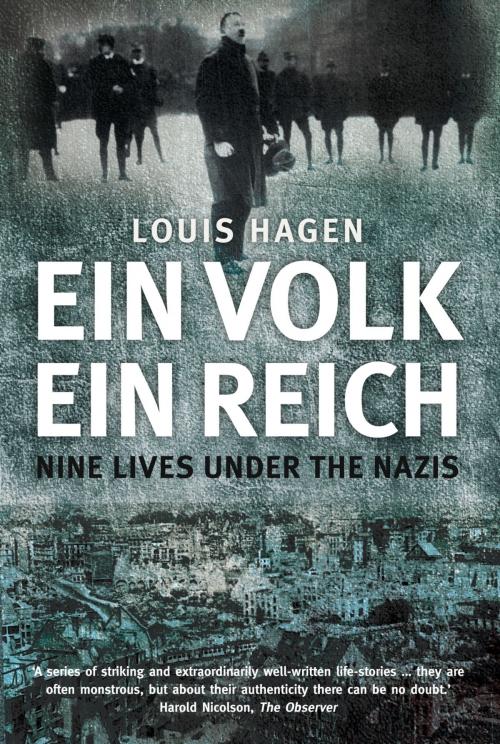| Author: | Louis Hagen | ISBN: | 9780752469331 |
| Publisher: | The History Press | Publication: | August 26, 2011 |
| Imprint: | The History Press | Language: | English |
| Author: | Louis Hagen |
| ISBN: | 9780752469331 |
| Publisher: | The History Press |
| Publication: | August 26, 2011 |
| Imprint: | The History Press |
| Language: | English |
Through the lives of nine ordinary Germans, tracing their experiences of Nazism from the first hopeful days until the horrors of the Russian occupation of Berlin, Louis Hagen provides a salutary and unforgettable record of the German people in the shadow of the swastika When Louis Hagen returned to Berlin immediately after the war, he had survived incarceration and torture in a German concentration camp as well as the Battle of Arnhem, seen his family flee their home, and had many relatives die at the hands of the Third Reich. He wanted to understand why so many Germans had welcomed the Nazi Party, and whether they were they now humbled and wiser. Hagen interviewed nine people he had known before the war who represented a wide spectrum of German society—an SA officer, a businessman, a doctor, a socialite, a journalist, a professional soldier, an SS wife, a member of the Hitler Youth, and a mischling, or half Jew. Four were Nazis, three were collaborators, and two were anti-Nazi. How could the Baroness sent to Theriesenstadt concentration camp hold salons for ex-Nazis after the war? The very fact that none of these people was a high-ranking Nazi official or a survivor of the Holocaust provides an insight into the Third Reich that is a revelation even for those who know this period of history intimately.
Through the lives of nine ordinary Germans, tracing their experiences of Nazism from the first hopeful days until the horrors of the Russian occupation of Berlin, Louis Hagen provides a salutary and unforgettable record of the German people in the shadow of the swastika When Louis Hagen returned to Berlin immediately after the war, he had survived incarceration and torture in a German concentration camp as well as the Battle of Arnhem, seen his family flee their home, and had many relatives die at the hands of the Third Reich. He wanted to understand why so many Germans had welcomed the Nazi Party, and whether they were they now humbled and wiser. Hagen interviewed nine people he had known before the war who represented a wide spectrum of German society—an SA officer, a businessman, a doctor, a socialite, a journalist, a professional soldier, an SS wife, a member of the Hitler Youth, and a mischling, or half Jew. Four were Nazis, three were collaborators, and two were anti-Nazi. How could the Baroness sent to Theriesenstadt concentration camp hold salons for ex-Nazis after the war? The very fact that none of these people was a high-ranking Nazi official or a survivor of the Holocaust provides an insight into the Third Reich that is a revelation even for those who know this period of history intimately.















